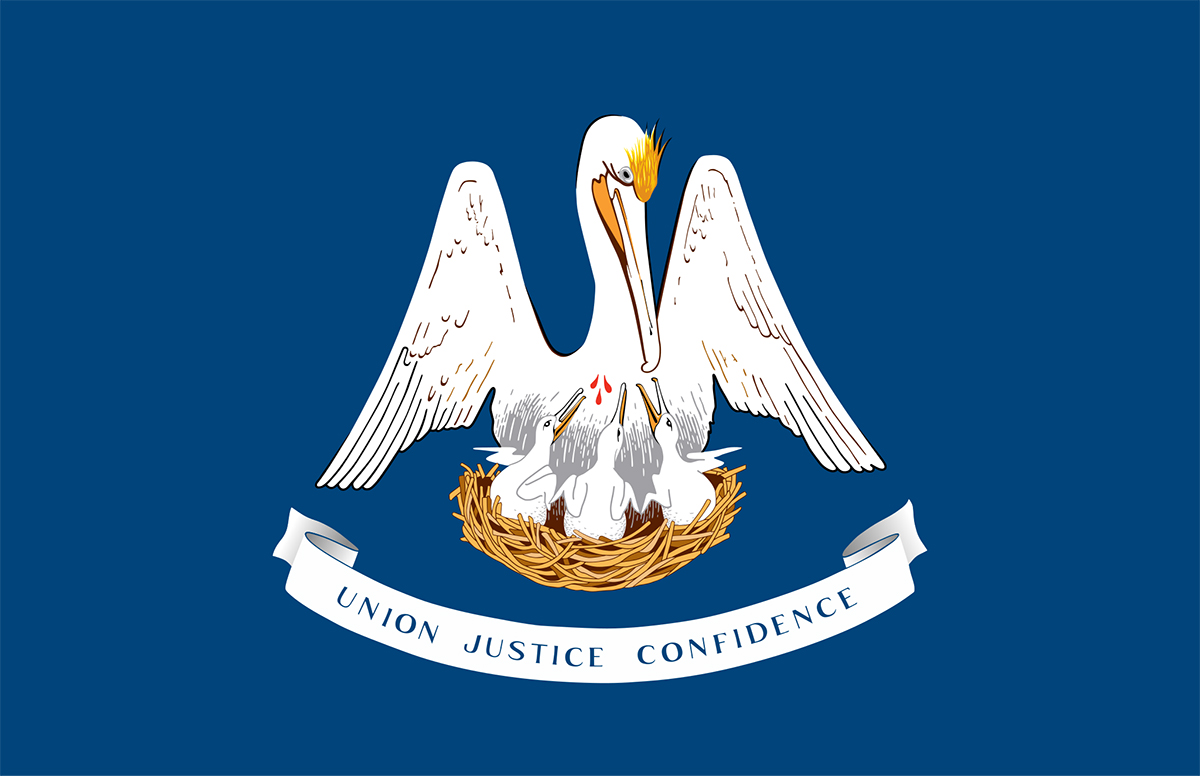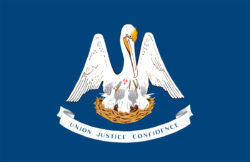Luis Unzaga y Amezaga
Luis Unzaga was the third Spanish governor of Louisiana, serving from 1769 until 1777.

Louisiana Secretary of State
Louisiana State Flag, 2010.
Luís Unzaga was the third Spanish governor of Louisiana, serving from 1769 until 1777. He eased the transition from French to Spanish rule by appointing French citizens to government posts, improving conditions in the colony, and tolerating illegal British trade in order to provide residents with valued goods. Unzaga also worked to improve relations with the local Creole community, some of whom strongly resented Spanish control of the colony.
Luís Unzaga y Amezaga was born in Málaga, Spain in 1721. Relatively little is known about his early life, but he served in the Spanish military and participated in the Italian campaign of 1735. In 1740 he was promoted to brigadier general of the Regiment of Havana and named the lieutenant governor of Puerto Príncipe, Cuba and later Santiago de Cuba. In 1769, Unzaga accompanied Alejadro O’Reilly—whom King Charles III had appointed to quell a revolt among French colonists—to Louisiana, where they organized the Regiment of Louisiana. While O’Reilly eventually returned to Havana, Unzaga stayed in the colony, serving as acting governor until his commission was made permanent in 1772.
Unzaga married Marie Elizabeth de St. Maxent, the daughter of a wealthy New Orleans merchant, currying favor with many of the colony’s residents. He was also well-liked for looking the other way when British ships anchored near the banks of the colony to conduct trade with the colonists. Though illegal, this practice brought needed supplies to the region and improved Unzaga’s relations with the colonists. Unzaga also built fortifications along the Mississippi River to guard against future flooding.
During his period as governor Unzaga’s eyesight deteriorated, leading him to request permission to retire. Instead, the Spanish Crown appointed him captain general of Caracas, and then governor and captain of Venezuela. Finally, he served as captain general of Cuba. At the end of his career, he was promoted to lieutenant general and finally retired to Málaga, where he died on July 21, 1793.
Adapted from Paul E. Hoffman’s entry for the Dictionary of Louisiana Biography, a publication of the Louisiana Historical Association in cooperation with the Center for Louisiana Studies at the University of Louisiana, Lafayette.
Sources: Jacobo de la Pezuela y Lobo, Diccionario geográfico, estadístico, histórico de la isla de Cuba, 4 vols. (1863-1866), IV; Jack D. L. Holmes, Honor and Fidelity (1965); Luís A. Sucre, Governadores y capitanes general de Venezuela (1928); Brian Coutts, “Martín Navarro, Treasurer, Contador, Intendant, 1766-1788” (Ph. D. dissertation, 1981).
